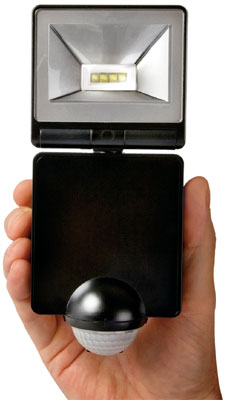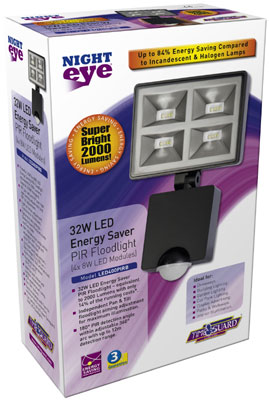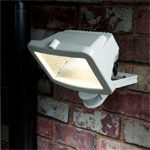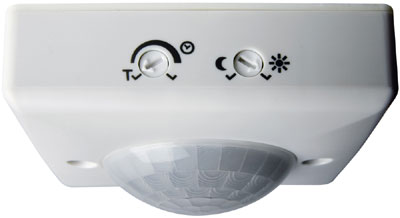LED lighting seems to be forging ahead, and rightly so as it offers massive savings, but it's still not quite the only game in town. … more efficient halogen lighting and automation of existing interior installations using PIR presence and motion detection will continue to account for a significant proportion of your turnover for some time yet.

LED floodlighting
We all know the arguments: the long lifespans and low energy use make LEDs economically attractive because even though the initial installation costs more, the running and maintenance bills are lower.
Clearly there is a huge market potential for LED security floodlights. Nevertheless Timeguard's customer research about that time had suggested that there was still a reluctance to pay premiums prices and so we went a step further and added extra value in the design of the product.

Rather than just put LEDs in an old-style housing e went the extra mile with the new design concept of our NightEye range – a top seller since day 1. So, alongside the original 8w and 16W models, we have now introduced a 32W LED floodlight with an output equivalent to a 230W hardcore halogen floodlight giving providing upto 84% energy saving.
Halogen – still with us
Halogen lamps remain pop are still a relatively inexpensive option compared to new-generation LED floodlights. When installed correctly to avoid nuisance switching and fitted with C Class energy saving lamps, they do offer real energy savings and now they too, have had a long-deserved makeover.

A modern, sleeker halogen casing, coupled with a smaller and more-compact PIR detector head, makes Timeguard's energy-efficient range of automatic halogen floodlights attractive enough for use in a wide range of applications. That's without compromise on reliability or the power of the lighting they emit for deterrence or courtesy/safety.
Enhanced presence
Indoors the brightness of LEDs is not to everyone's taste and the idea of changing fittings throughout a building would fill many a financial director or home owner with horror at the moment. So the challenge is more efficient use of what you've already got.
Time control and delay switches are one answer, but don't always meet the needs of a busy, flexible office or home. Automatic PIR-activated switching is becoming more common, especially now that the pioneering work of our sister company HTS in presence detection is being made available and affordable across the market.

Costing little more than a basic PIR detector, and nowhere near the £100s that you'd pay for a top of the range 'designer' presence detector for smart buildings, these devices offer the best of both worlds. Within the central detection field, itself a good 3m, they act as presence detectors, reacting to the smallest movement of a person working on a keyboard or a resident using a remote control or sitting quietly and reading. In the outer areas, extending to 10m, they will act as a normal PIR detector, reacting to people entering or leaving the area. Being simple to install, they offer instant energy savings.




